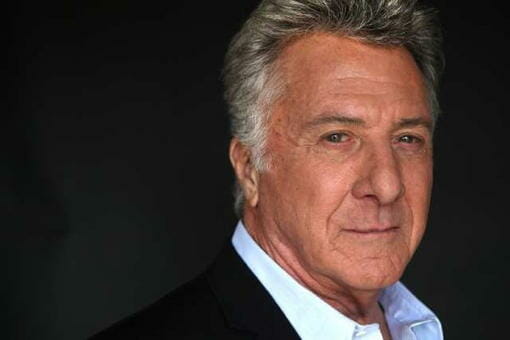By Meredith Alloway · November 8, 2012

It’s a special treat when a director accompanies his film at a festival. Most of the time, the filmmakers will introduce the premiere and leave. But when Hoffman sat down after a screening of Quartet at the Egyptian Theater Sunday night, I was ecstatic. The film is his directorial debut and an exciting moment in the evolution of his legendary career.
Hoffman first began by discussing how the film came together. He was lucky to have renowned actors like Billy Connelly, Pauline Hoffman and Maggie Smith on board from the beginning. He jokes, “I love google” and did his research on the members of his cast. After looking up Maggie Smith on the web, he felt connected to where she was in her life. She went through a difficult period of cancer and underwent radiation. “She said she never wanted to act again.” Hoffman says, “I found a specific quote from one of her interviews that I knew I had to add into her dialogue in the film.” He speaks about how his research on her informed the character development. The evolution of Smith’s character in the film mirrored her own personal life. They were able to improvise moments in the script because they were all experiencing aging in their own lives.
This led Hoffman to then discussing how much stress he puts on “doing what you know.” He tells an audience member, “All of us making the film are in our 70s and we should feel free to talk about it. We should put it on the screen.” This bravery illuminates Quartet, a story that focuses on a part of society that consistently goes unexplored in cinema.
Hoffman was asked about this challenges switching from actor to director. He explained, “As actors, we are absorbed in our own ideas. Were like kids. Kids can be brutally insensitive. I was that way on set. I had no clue as to what horrors the director had been through.” His went on to describe his experience finally as a director as humbling. He realized how much responsibility they have, as opposed to actors who have to just focus on themselves on set.
Hoffman has worked with legendary filmmakers throughout his career, from Mike Nichols to Barry Levinson to Steven Spielberg. An audience member asked what we’ve all been dying to know, “What have you learned not to do as a director?” His answer was extensive. “Some directors love actors. Some really don’t like actors. Some like to be surprised. Others, when you say you have an idea, their eyes glaze over. A lot of directors know what it should look like in their heads and they want you to fit in that.” But he emphasizes that he’s not that kind of director.
“Let the actor perform the role. There should never be a bad performance on the screen. If there is, that’s the editor’s fault. There’s that someone in the cutting room who thinks its good when it’s not. Ultimately the director should get the actor to the point where they actor doesn’t have to make the scene work. Let them keep trying things and then discard them because they don’t feel right. But then sometimes it does just work; it’s a gut thing.”
Perhaps Hoffman’s most passionate moment in the interview is when he described his most important advice. “Let the actors have their room to fail. Fail, fail, fail better. That’s what Samuel Beckett always said.
Of course we all do wonder whether or not Hoffman missed being in the film. But he explained, “Iam in the film because everything should be autobiographical. Brando said you couldn’t do a character till you can think like a character.” Hoffman stresses the power in letting yourself come through every character as a director, “They are just the scrim you shine through.”
When the film credits rolled for Quartet, I turned the person next to me prepared for their “What did you think of the film?” The film was definitely still marinating, but I knew, “I could completely see Hoffman’s personality in the film. It was in every moment.” And it seems that’s exactly what he intended.